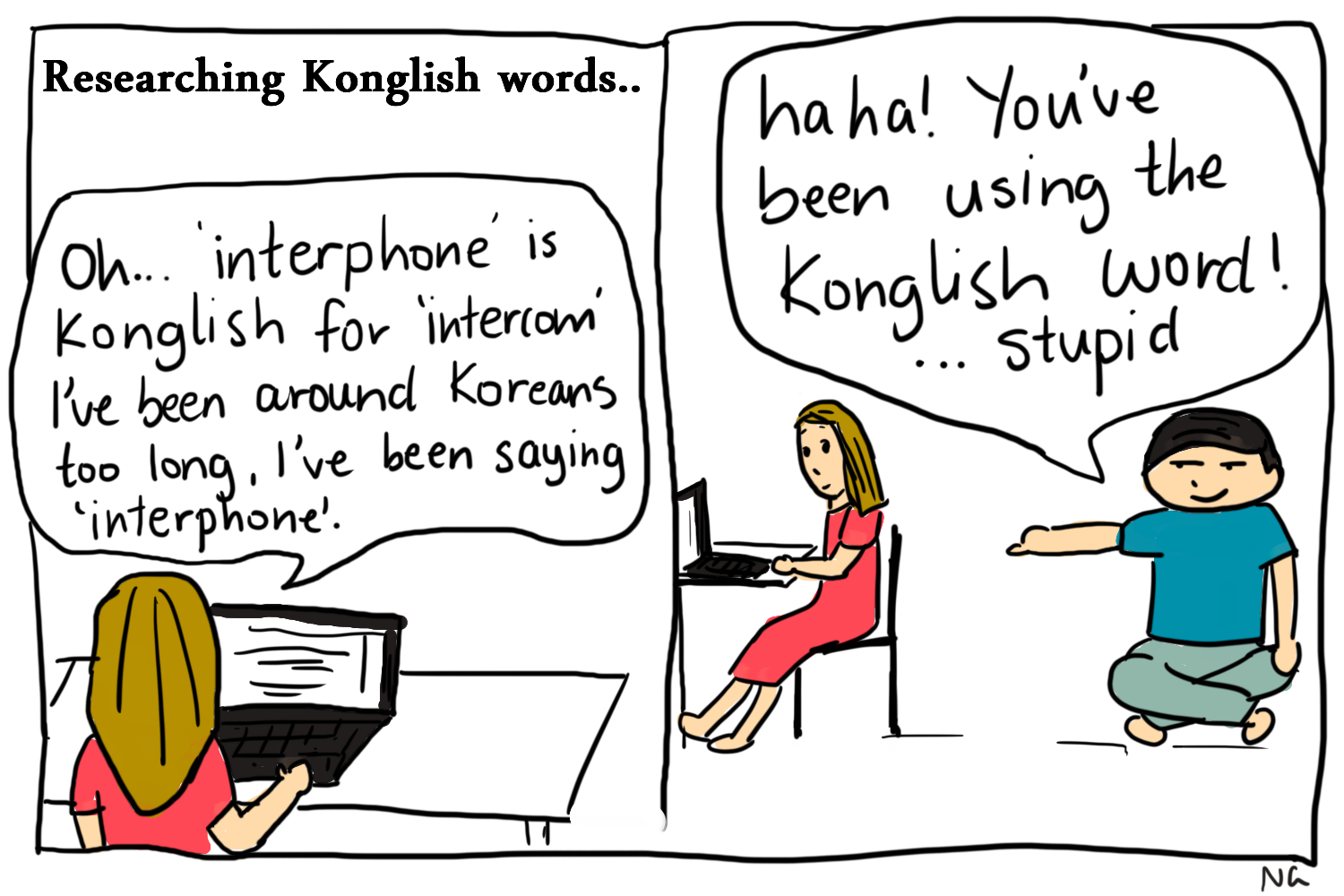 Says the guy still learning English, who uses Konglish and makes mistakes all the time…
Says the guy still learning English, who uses Konglish and makes mistakes all the time…
Konglish is funny. Some words make a lot of sense, others are weird or completely different to the real English word. While I do enjoy some Konglish the biggest problem with Konglish is that Koreans often think it is real English. Some Koreans come to an English speaking country thinking “I’ll be fine, I know lots of English words.” Big difference between English and Konglish. While some like interphone/intercom really don’t matter there are plenty that sound like gibberish to native English speakers.
Some we can guess but you are probably going to be confused if a Korean says to you: “Fighting! I need to buy some fancy and then let’s go back to my apart for some skinship and eat some cream sand.”
10 points to whoever can translate that.
The other night while out with Korean friends I was asked if I wanted to play some ‘pocketball’? What? I was pretty confused for a while. Apparently that is pool/billiards.

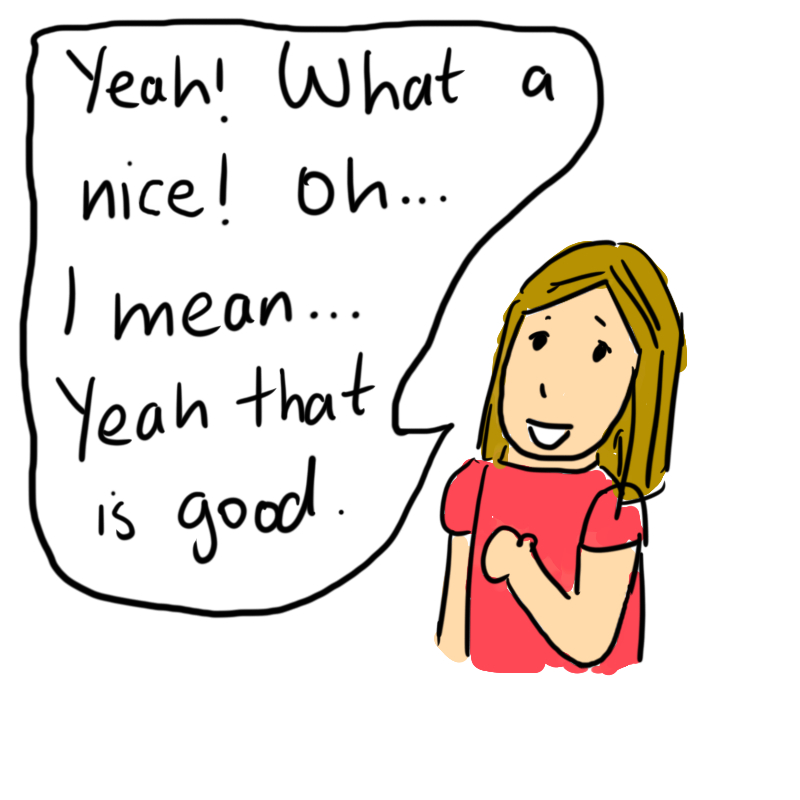
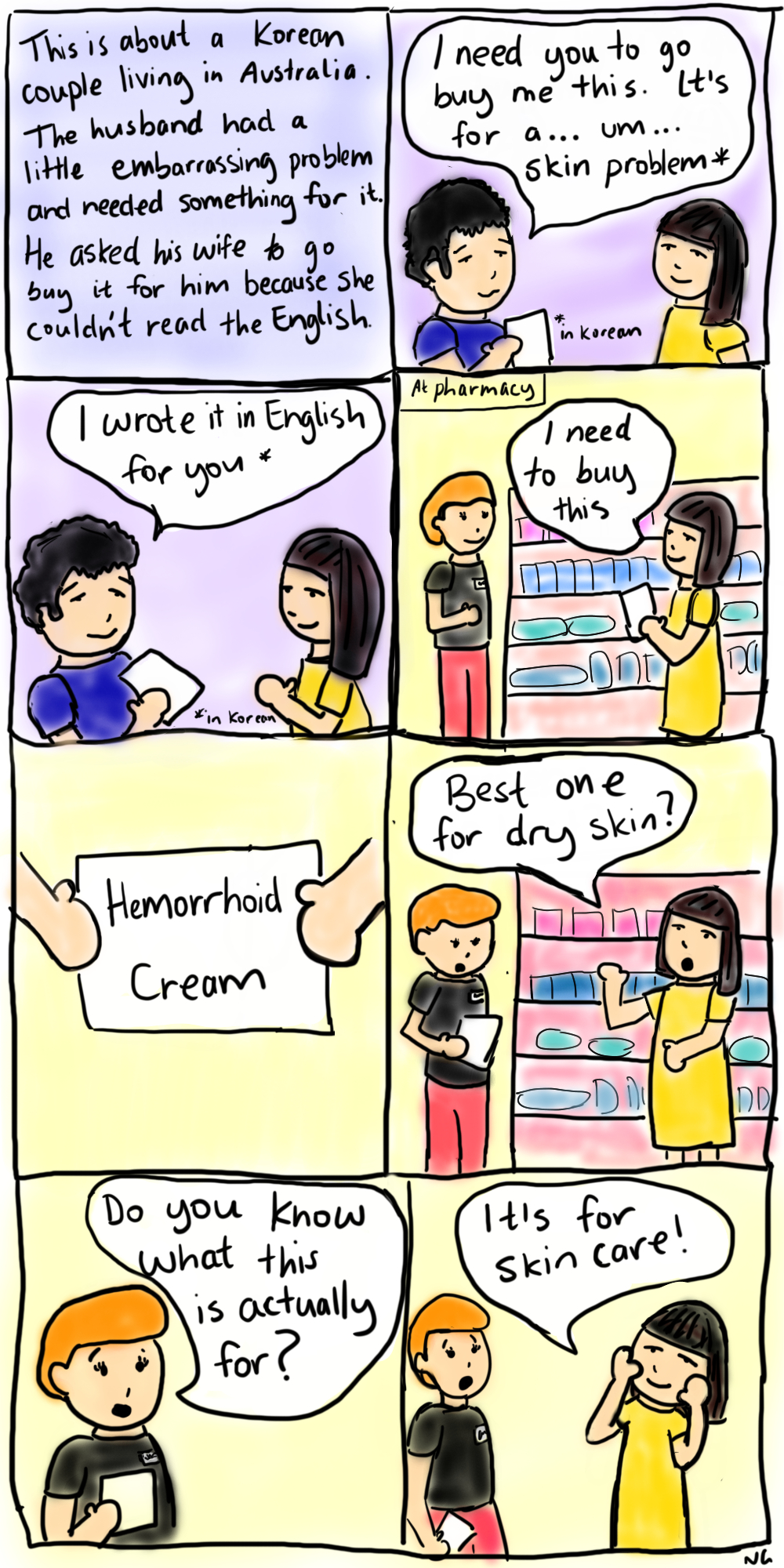
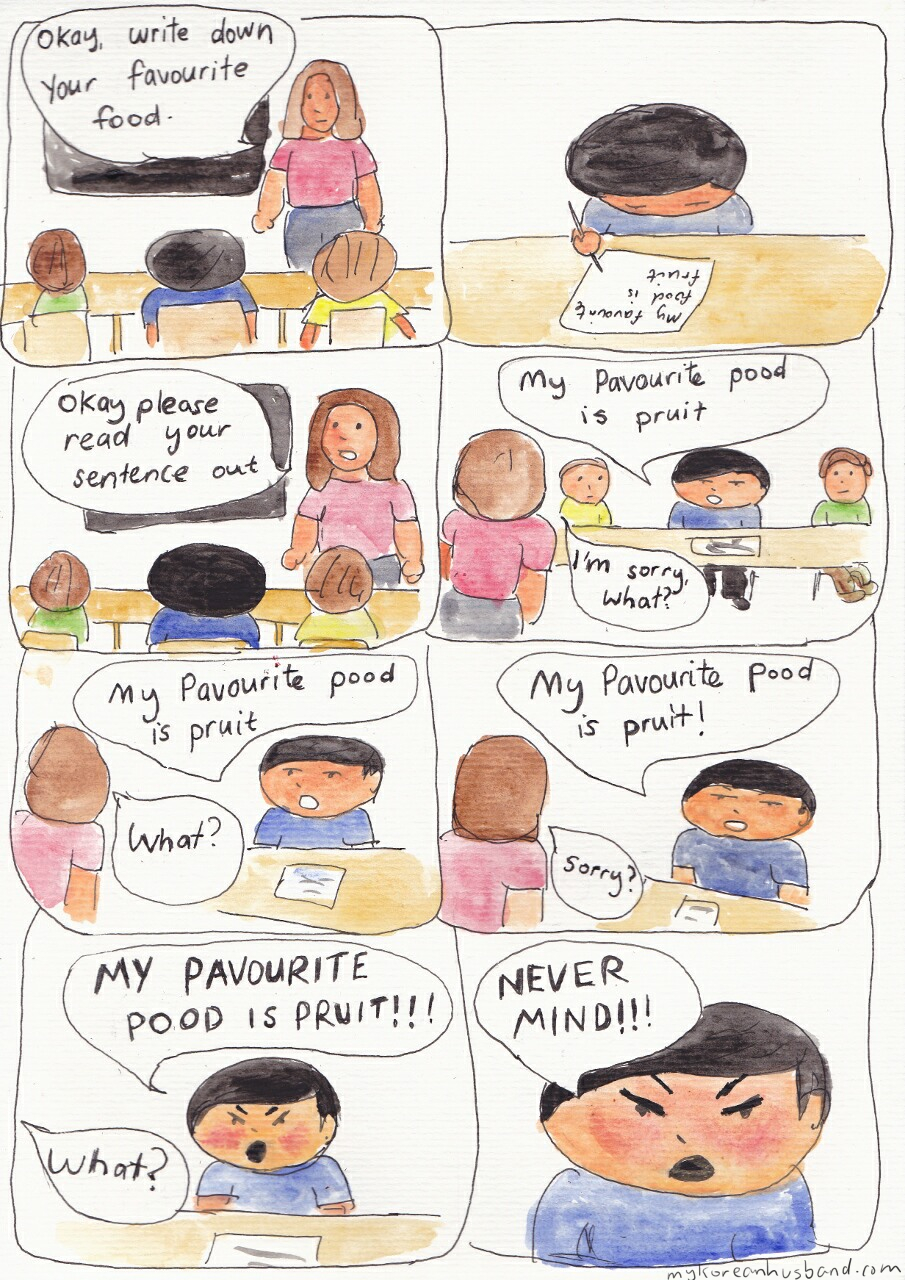
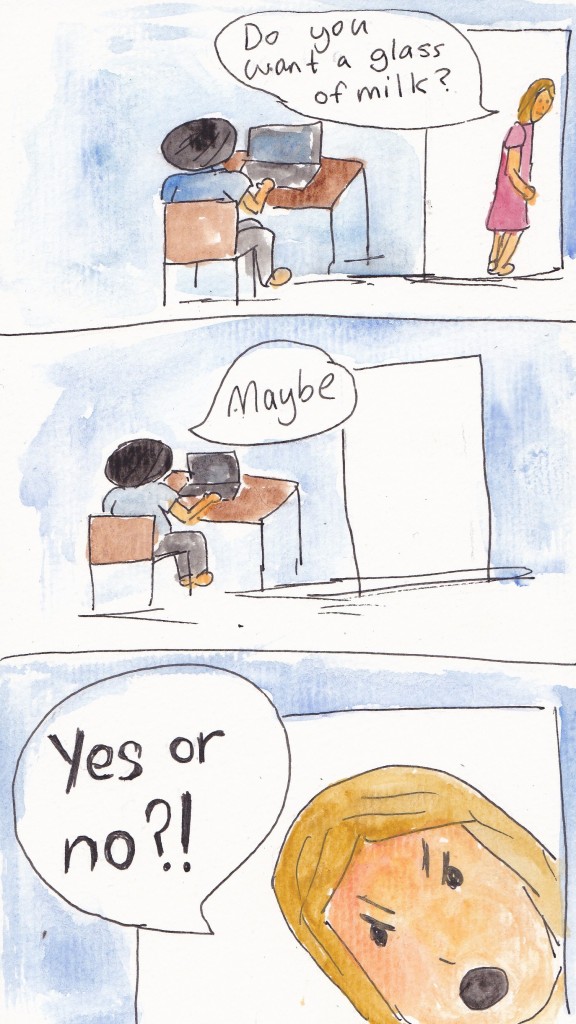
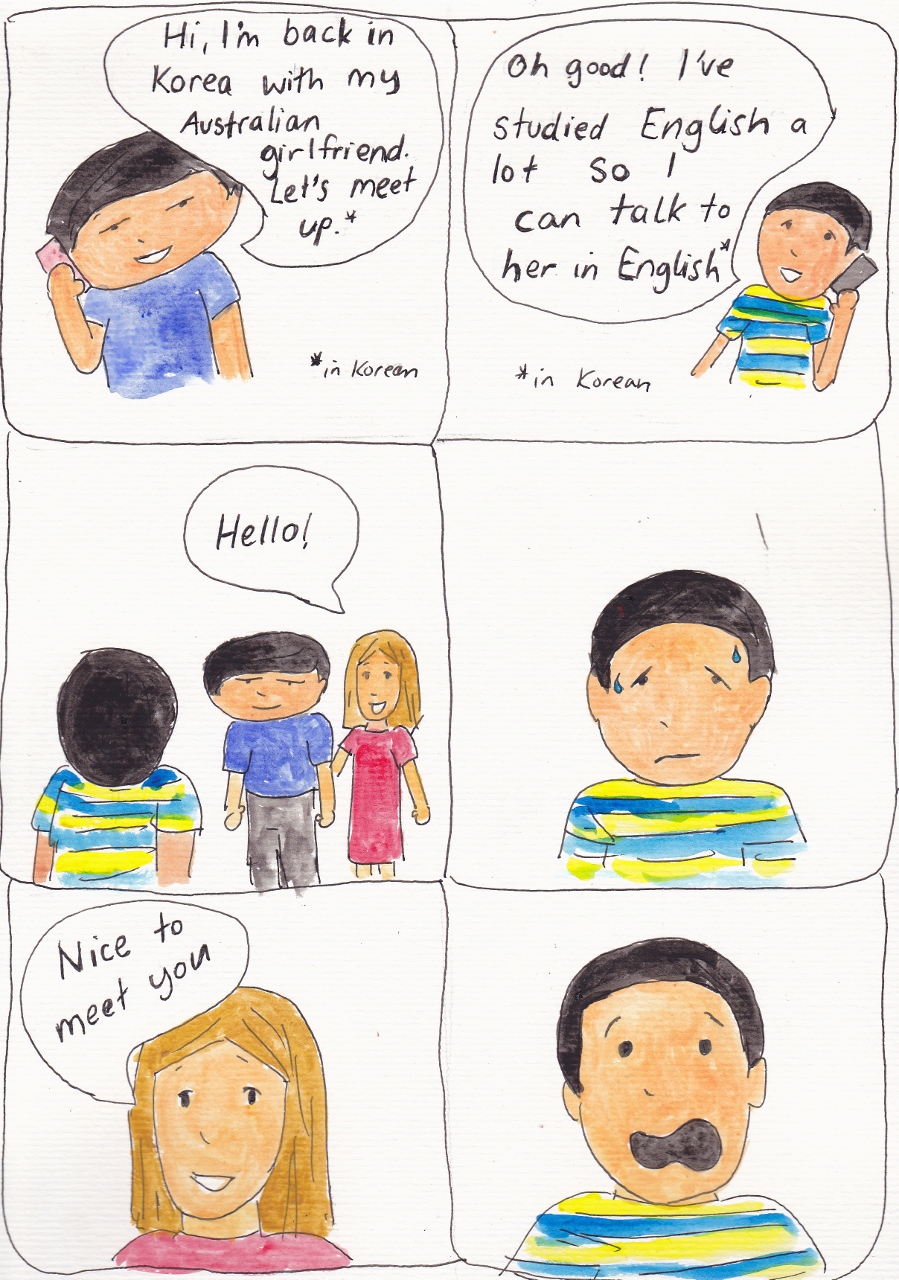
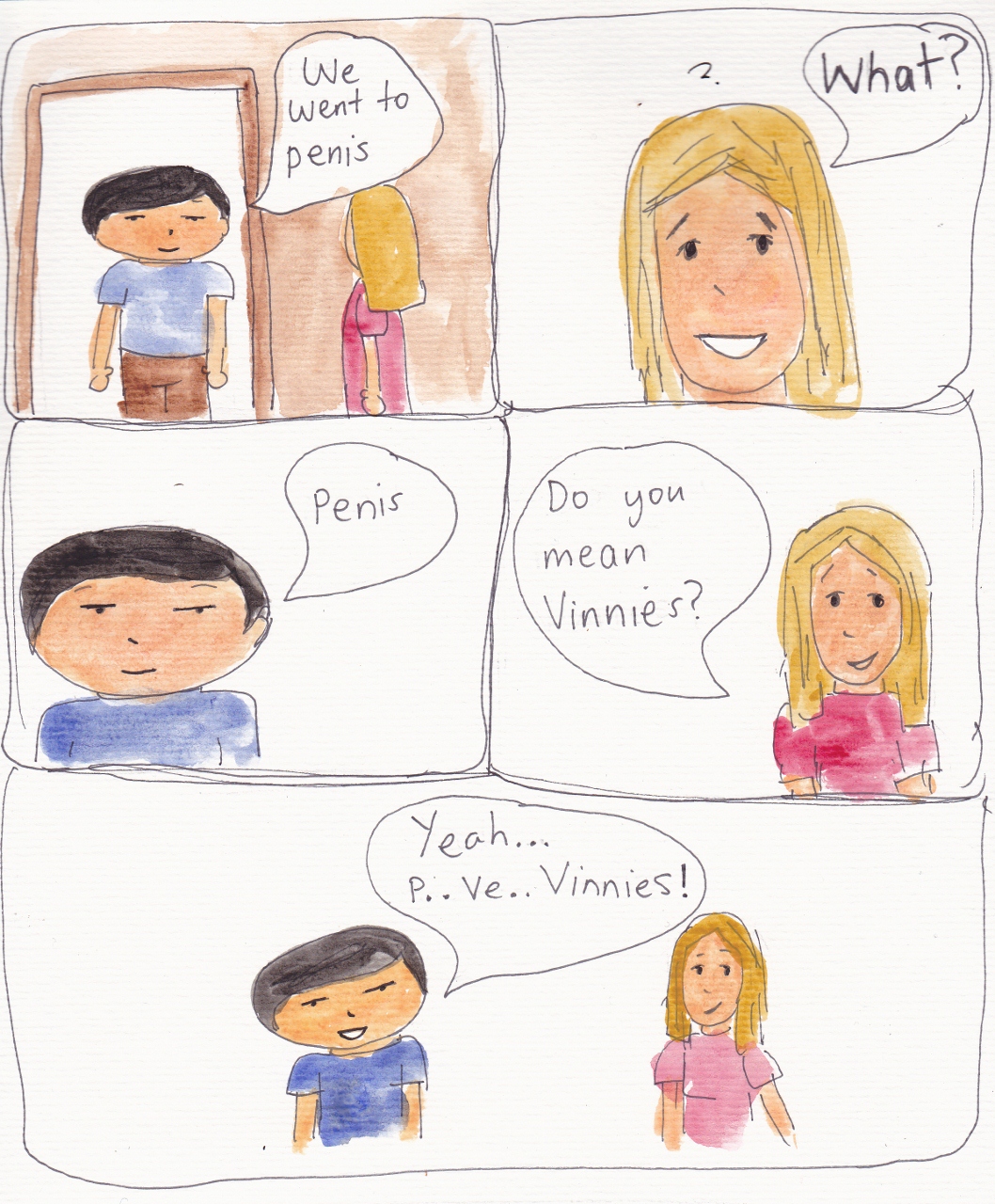

Recent Comments